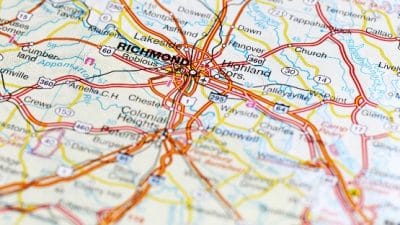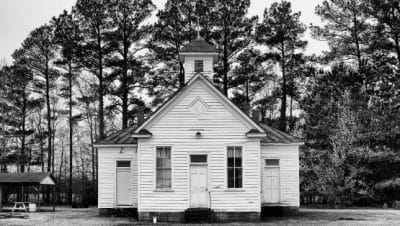
Dear EarthTalk: How does better broadband access in rural areas help the climate? P.C., via email
Broadband is another term for high-speed internet. According to the Federal Communications Commission (FCC), consumers should have access to download speeds of at least 25 Megabits per second (Mbps) and upload speeds of three Mbps to meet this definition. That’s enough to browse the web, check email, and stream lower-resolution video. Giving more people access to broadband, especially in rural areas, has myriad environmental and economic benefits.
In rural areas, broadband access is limited by existing infrastructure and a lack of financial motivation for Internet service providers (ISPs) to offer services to a smaller number of subscribers. “A lot of times rural areas don’t have high priority because they don’t have the population threshold,” says Illinois State University geography professor John Kostelnick to The Daily Yonder. Approximately 3.6 billion people worldwide don’t have access to a stable internet connection, and an estimated 80 percent of those live in rural areas. The adverse effects of a lack of connection in a digital world go beyond missed social and professional opportunities. Lack of broadband access in rural areas is also harmful to the climate.
Better broadband access can reduce emissions from cars and public transit as people go online to fulfill various needs. An hour-long commute to the office is swapped for work from home. An online university allows students to study from anywhere. TeleHealth replaces a doctor’s office visit. Technologies such as smart thermostats and electric water heaters can reduce energy use, particularly in older buildings.
The benefits aren’t limited to individuals. Broadband is an essential tool for so-called “precision agriculture,” whereby collecting and analyzing on-farm data informs decision-making for improved resource use. Nitrogen fertilizer, for instance, releases nitrous oxide, which is 300 times more potent as a greenhouse gas than carbon dioxide per ton. With precision agriculture, farmers can optimize their fertilizer application and reduce emissions, with the side benefit of improved water quality from reduced run-off. Likewise, broadband-enabled precision forestry can improve land management by sensing and deploying resources and people to minimize damage from wildfires, pests, and plant diseases.
Other options exist for increased broadband access, but choices may be limited where you live. Satellite internet is costly, spotty in bad weather, and has data caps. Mobile hotspots have data limits, too, and require cell towers. Some opt to join community networks for stable, reliable connections, where private entities collaborate with governments and communities to set up networks for underserved populations.
Barriers to broadband access include physical and regulation obstacles. Rivers and wooded regions complicate the set-up and maintenance of necessary equipment. Obtaining permits for laying cable is complex since their installation involves compliance with zoning, historic preservation, and other laws. The Bipartisan Policy Center, a non-profit that helps policymakers work across party lines to craft bipartisan solutions, calls for more attention and funding from policymakers. Federal and local governments have programs that offer incentives for ISPs in rural areas.
But continued advocacy is crucial. For instance, the FCC’s Affordable Connectivity Plan provides discounts on broadband services for eligible rural households—and its future is not certain beyond 2024 unless Congress approves additional funding. Bridging the broadband access gap “creat[es] opportunities to lower net greenhouse emissions while bolstering rural economies,” reports the Bipartisan Policy Center. Individuals can narrow the digital divide by engaging with local groups, pushing for policy changes, putting their money into building more internet connections, and helping others learn how to use the internet. Together, these efforts will ensure everyone has access to the opportunities and benefits of digital connectivity while contributing to a greener future.
CONTACTS: Four Ways that Rural Broadband Fights Climate Change, bipartisanpolicy.org/blog/four-ways-that-rural-broadband-fights-climate-change/; Broadband Expansion Helps Address Climate Change, wcif.org/blog/environment/broadband-expansion-helps-address-climate-change/; Broadband access opens new doors for rural residents, Cox study finds, www.emergingtechbrew.com/stories/2024/02/06/broadband-rural-access-cox-study.
EarthTalk® is produced by Roddy Scheer & Doug Moss for the 501(c)3 nonprofit EarthTalk. See more at emagazine.com. To donate, visit earthtalk.org. Send questions to: [email protected].









